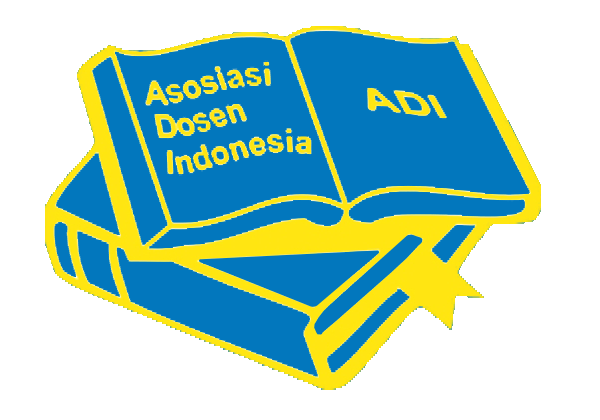Emotional Intelligence and Eating Disorders: Comparison by Gender in Taekwondo Athletes
Abstract
Emotional intelligence is necessary to manage emotions and feelings to have a positive impact on mental health. This study examines emotional intelligence and eating disorders in taekwondo athletes. The purpose of this study was to determine the relationship between emotional intelligence and eating disorders with mental health disorders in taekwondo athletes and to provide gender-specific comparisons. A quantitative sample of 29 taekwondo athletes aged 13-17 was used as a research method. The Trait Emotional Intelligence Adolescent Short Form model was used to measure emotional intelligence and the EAT-26 model was used to measure eating disorders. The data analysis technique uses a correlation test. Based on data processing and analysis using SPSS, the results show a relationship between emotional intelligence and eating disorders in 13-17-year-old male taekwondo athletes, and there was no relationship between emotional intelligence and eating disorders in female taekwondo athletes. The conclusion of this research is that there is a negative and significant relationship between emotional intelligence and eating disorders in adolescent taekwondo athletes.
References
Baum, A. (2006). Current opinion. Eating disorders in the male athlete. Sports Medicine, 36(1), 1–6. http://search.ebscohost.com/login.aspx?direct=true&AuthType=ip,shib&db=jlh&AN=106421617&site=ehost-live
Boyatzis, R. E., Goleman, D., & Rhee, K. (1999). CLUSTERING COMPETENCE IN EMOTIONAL INTELLIGENCE: INSIGHTS FROM THE EMOTIONAL COMPETENCIE INVENTORY (ECI). www.eiconsortium.org
Capasso, A., Petrella, C., & Milano, W. (2009). Recent Clinical Aspects of Eating Disorders. In Reviews on Recent Clinical Trials (Vol. 4).
Costarelli, V., & Stamou, D. (2009). Emotional Intelligence, Body Image and Disordered Eating Attitudes in Combat Sport Athletes. Journal of Exercise Science and Fitness, 7(2), 104–111. https://doi.org/10.1016/S1728-869X(09)60013-7
Ferdi Irawan, Y., & Limanto, D. (2020). Pengaruh Kecerdasan Emosi dan Kesiapan Diri Terhadap Pertandingan Pada Pemain Walet Muda Futsal Academy Kebumen Tahun 2020. Jurnal Moderasi Olahraga.
Foye, U., Hazlett, D. E., & Irving, P. (2019a). Exploring the role of emotional intelligence on disorder eating psychopathology. Eating and Weight Disorders, 24(2), 299–306. https://doi.org/10.1007/s40519-018-0629-4
Foye, U., Hazlett, D. E., & Irving, P. (2019b). ‘The body is a battleground for unwanted and unexpressed emotions’: exploring eating disorders and the role of emotional intelligence. Eating Disorders, 27(3), 321–342. https://doi.org/10.1080/10640266.2018.1517520
Fraenckel, J. R., & Wallen, N. E. (2012). How to Design and Evaluate Research in Education. In Encyclopedia of Database Systems. https://doi.org/10.1007/978-1-4899-7993-3_80736-1
Galmiche, M., Déchelotte, P., Lambert, G., & Tavolacci, M. P. (2019). Prevalence of eating disorders over the 2000-2018 period: A systematic literature review. American Journal of Clinical Nutrition, 109(5), 1402–1413. https://doi.org/10.1093/ajcn/nqy342
Golden, N. H., Schneider, M., Wood, C., Daniels, S., Abrams, S., Corkins, M., De Ferranti, S., Magge, S. N., Schwarzenberg, S., Critch, J., Hubbard, V., Scanlon, K., Soto, V., Burrowes, D., Haro, T., Braverman, P. K., Adelman, W., Alderman, E. M., Breuner, C. C., … Lindros, J. (2016). Preventing obesity and eating disorders in adolescents. Pediatrics, 138(3). https://doi.org/10.1542/peds.2016-1649
Goleman, D. (1998). Working with Emotional Intelligence. Bantam.
Hasna, A. (2021). Diagnosis dan Tatalaksana Bulimia Nervosa. Jurnal Medika Hutama, 02(04), 1218–1222.
Hilbert, A., Pike, K. M., Goldschmidt, A. B., Wilfley, D. E., Fairburn, C. G., Dohm, F. A., Walsh, B. T., & Striegel Weissman, R. (2014). Risk factors across the eating disorders. Psychiatry Research, 220(1–2), 500–506. https://doi.org/10.1016/j.psychres.2014.05.054
Krentz, E. M., & Warschburger, P. (2011). A longitudinal investigation of sports-related risk factors for disordered eating in aesthetic sports. 2007, 1–8. https://doi.org/10.1111/j.1600-0838.2011.01380.x
Krisnani, H., Santoso, M. B., & Putri, D. (2018). Gangguan Makan Anorexia Nervosa Dan Bulimia Nervosa Pada Remaja. Prosiding Penelitian Dan Pengabdian Kepada Masyarakat, 4(3), 399. https://doi.org/10.24198/jppm.v4i3.18618
Mancine, R., Kennedy, S., Stephan, P., & Ley, A. (2020). Disordered Eating and Eating Disorders in Adolescent Athletes. Spartan Medical Research Journal, 4(2). https://doi.org/10.51894/001c.11595
Markey, M. A., & Vander Wal, J. S. (2007). The role of emotional intelligence and negative affect in bulimic symptomatology. Comprehensive Psychiatry, 48(5), 458–464. https://doi.org/10.1016/j.comppsych.2007.05.006
Markey, M. A., & Wal, J. S. Vander. (2007). The role of emotional intelligence and negative affect in bulimic symptomatology. 48, 458–464. https://doi.org/10.1016/j.comppsych.2007.05.006
Mayer, J. D., Roberts, R. D., & Barsade, S. G. (2008). Human abilities: Emotional intelligence. Annual Review of Psychology, 59, 507–536. https://doi.org/10.1146/annurev.psych.59.103006.093646
Mayer, J. D., & Salovey, P. (1993). The Intelligence of Emotional. In INTELLIGENCE (Vol. 17).
Mayer, J. D., Salovey, P., Caruso, D. R., & Sitarenios, G. (2001). Emotional Intelligence as a Standard Intelligence. Emotion, 1(3), 232–242. https://doi.org/10.1037/1528-3542.1.3.232
Meyer, C., Leung, N., Barry, L., & De Feo, D. (2010). Emotion and eating psychopathology: Links with attitudes toward emotional expression among young women. International Journal of Eating Disorders, 43(2), 187–189. https://doi.org/10.1002/eat.20659
Nolidin, K., Downey, L. A., Hansen, K., Schweitzer, I., & Stough, C. (2013). Associations between social anxiety and emotional intelligence within clinically depressed patients. Psychiatric Quarterly, 84(4), 513–521. https://doi.org/10.1007/s11126-013-9263-5
Park, R. J., Lawrie, S. M., & Freeman, C. P. (1995). Post-Viral Onset of Anorexia Nervosa. In British Journal of Psychiatry (Vol. 166).
Petrides, K. V. (2009). Psychometric Properties of the Trait Emotional Intelligence Questionnaire (TEIQue) (pp. 85–101). https://doi.org/10.1007/978-0-387-88370-0_5
Petrides, K. V., Pita, R., & Kokkinaki, F. (2007). The location of trait emotional intelligence in personality factor space. British Journal of Psychology, 98(2), 273–289. https://doi.org/10.1348/000712606X120618
Sato, Y., & Fukudo, S. (2015). Gastrointestinal symptoms and disorders in patients with eating disorders. In Clinical Journal of Gastroenterology (Vol. 8, Issue 5, pp. 255–263). Springer-Verlag Tokyo. https://doi.org/10.1007/s12328-015-0611-x
Smink, F. R. E., Van Hoeken, D., Oldehinkel, A. J., & Hoek, H. W. (2014). Prevalence and severity of DSM-5 eating disorders in a community cohort of adolescents. International Journal of Eating Disorders, 47(6), 610–619. https://doi.org/10.1002/eat.22316
Sundgot-borgen, J., & Torstveit, M. K. (2004). Prevalence of Eating Disorders in Elite Athletes Is Higher Than in the General Population. 14(1), 25–32.
Weaving, J., Orgeta, V., Orrell, M., & Petrides, K. V. (2014). Predicting anxiety in carers of people with dementia: The role of trait emotional intelligence. International Psychogeriatrics, 26(7), 1201–1209. https://doi.org/10.1017/S1041610214000404
Zhang, J., Wang, Y., Wu, C., & He, J. (2022). The relationship between emotional intelligence and eating disorders or disordered eating behaviors: A meta-analysis. Personality and Individual Differences, 185(May 2021), 111239. https://doi.org/10.1016/j.paid.2021.111239
Zysberg, L., & Rubanov, A. (2010). Emotional intelligence and emotional eating patterns: A new insight into the antecedents of eating disorders? Journal of Nutrition Education and Behavior, 42(5), 345–348. https://doi.org/10.1016/j.jneb.2009.08.009
Copyright (c) 2023 Jp.jok (Jurnal Pendidikan Jasmani, Olahraga dan Kesehatan)

This work is licensed under a Creative Commons Attribution-ShareAlike 4.0 International License.
Authors retain copyright and grant the journal right of first publication with the work simultaneously licensed under a Creative Commons Attribution 4.0 International License that allows others to share the work with an acknowledgement of the work's authorship and initial publication in this journal.





.png)






